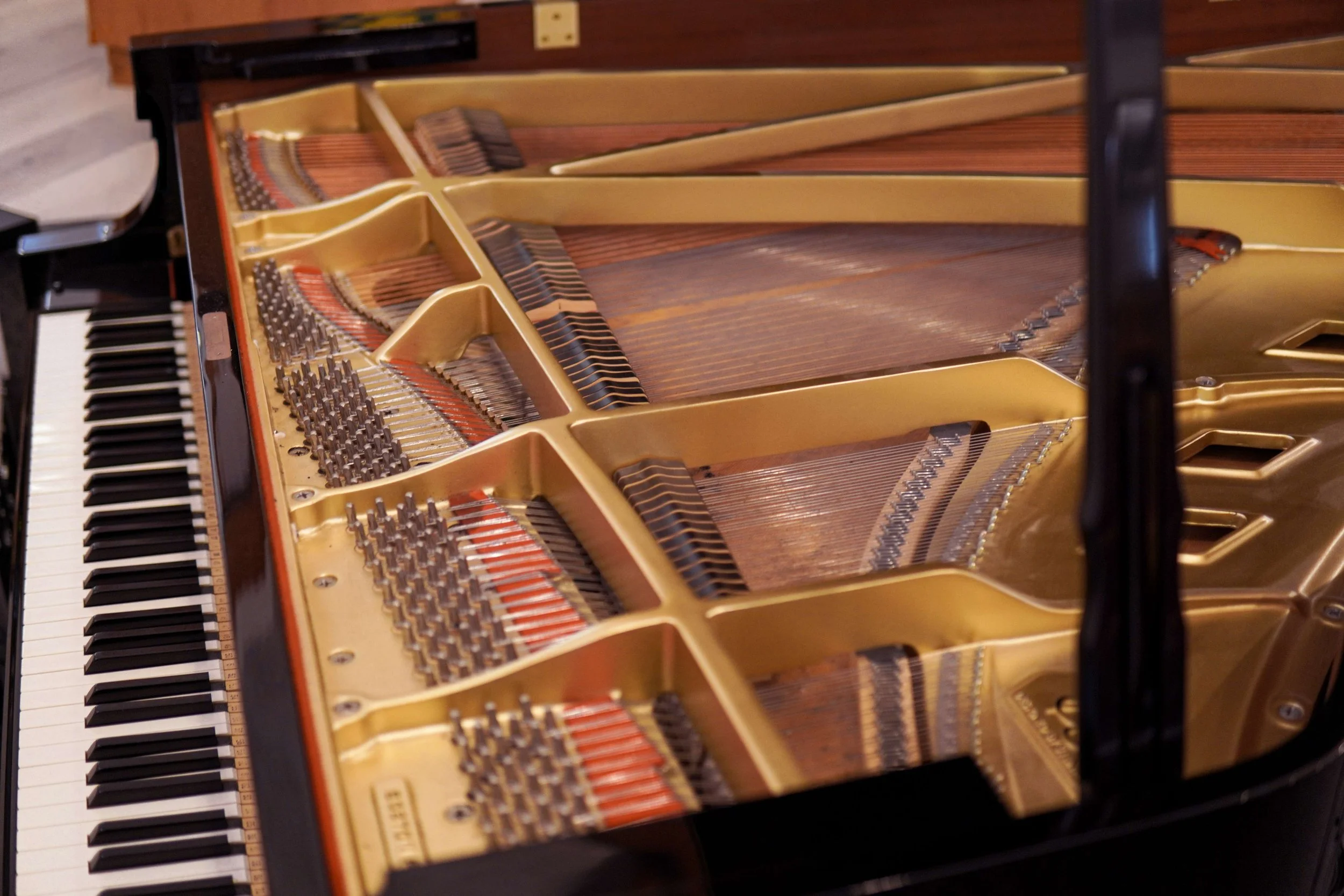
Frequently asked questions.
Can you tune my piano if it hasn’t been serviced in years?
Absolutely. Many pianos go years without tuning, and it’s never too late to get them sounding good again. If a piano is very out of tune, it may need an initial pitch raise before a standard tuning. This helps the strings adjust safely to proper tension and ensures the piano can hold its pitch moving forward.
How often should I have my piano tuned?
Most pianos should be tuned at least once a year to stay healthy and enjoyable to play. In an ideal world, tuning twice a year or before a recital or performance is best. Regular maintenance helps your piano hold its pitch, prevents costly repairs later, and keeps the music flowing smoothly in your home.
When is the best time of year to tune my piano?
Pianos respond to changes in humidity, so it’s best to tune them after major seasonal shifts. Usually once in the spring and once in the fall. That said, if you tune once a year around the same time, your piano will stay stable and healthy.
Should I be home during the tuning?
You’re welcome to stay home during your appointment, but it’s not required. Many customers use the time to relax, work, or run errands nearby. If you do stay home, a quiet space helps me hear the piano accurately while I work.
What does piano tuning involve?
Piano tuning is the process of adjusting the tension of the strings so they vibrate in harmony. Today, most pianos are tuned to the A440 standard, which ensures your instrument blends with other modern instruments. In simpler terms, tuning makes your piano sound the way it was meant to: clear, rich, and balanced across every note.
What is piano regulation?
Over time, pianos can develop issues such as sticky keys, uneven action, or buzzing sounds. Regulation addresses these problems by adjusting the intricate parts inside the piano’s action, sometimes called the “guts” of the instrument. While the process can be detailed and time consuming, it restores consistency, touch, and responsiveness so your piano plays as smoothly as it should.
What does piano cleaning include?
Dust and debris naturally build up inside pianos over the years. Cleaning involves carefully disassembling parts of the instrument to remove dirt, dust, and anything else that may have found its way inside. A clean piano not only looks better but also lasts longer and performs more reliably.
Why do piano services cost so much?
A piano has more than 200 strings, each requiring precise adjustment. Tuning alone can take three hours or more, and services such as cleaning or regulation often mean removing and calibrating the entire piano action. The cost reflects the time, care, and skill required to keep such a complex instrument in top condition.
How can I tell if my piano is out of tune?
Pianos usually drift out of tune gradually, which makes it hard to notice. Even if your piano seems fine, you may be surprised by how much clearer and vibrant it sounds after a professional tuning. A simple way to check is to play octaves and listen for wavering or clashing notes, but the surest way is regular service from a technician.
Why should I have my piano serviced regularly?
Similar to a car while you can just ignore the blinking lights and continue to use it, at some point it will damage the piano to a point where it ends up being harder to ignore and more expensive to fix. To keep both your piano and your mind healthy its best to tune the piano at least once a year or more depending on how many “miles” you put on it
